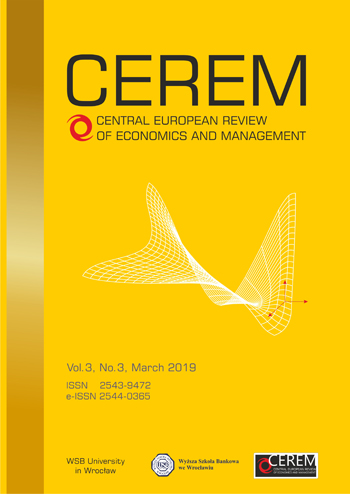The Seven Sustainability Competences according to the RESFIA+D Model. Part B: Practical Experiences
DOI:
https://doi.org/10.29015/cerem.854Keywords:
Competences, Sustainable Development, RESFIA D, Human Resource Development (HRD), Professionals, Organizations, EducationAbstract
Aim:
In a previous article within this same journal, called ‘The Seven Sustainability Competences according to the RESFIA+D Model. Part A: Conceptual background ‘, the origins, structure and validation were described of a model for professional competences for sustainable development, called RESFIA+D.
The model provides an assessment and policy instrument that can easily be applied practically. Examples of such applications are offered in the current article.
Companies, NGO’s and other organizations may apply RESFIA+D as a structured tool for human resource development (HRD). Institutions for higher and vocational education can use the instrument for education (re)development, where curricula and didactic approaches are derived from a systematically designed competence profile in which sustainable development is integrated. Finally, individual professionals may use RESFIA+D as a tool for professional development.
Design / Research methods:
The practical applications described in this article offered a way to evaluate and improve the RESFIA+D model, which contributed to the validation process of the assessment tool.
Conclusions / findings:
Based on reactions of users, it is concluded that the RESFIA+D assessment is helpful to enable organizations and individual professionals to understand their strengths and weaknesses in their competences in relation to sustainable development; and to enable educational institutions, e.g. universities, to improve their educational goals, competence profiles and curricula related to sustainable development.
Originality, value of the article:
The article focuses in a unique way on the roles of individual professionals towards sustainability, whereas most or all usual assessment models focus on the roles of either entire organizations, or of individual persons seen as civilians or customers.
References
For references related to the theoretical framework of RESFIA+D, see the previous article by the authors of the current article: ‘The Seven Sustainability Competences according to the RESFIA+D Model. Part A: Conceptual background’, published in this journal.
Other references:
INES (1995), INES Appeal to Engineers and Scientists, International Network of Engineers and Scientists for Global Responsibility, International Network of Engineers and Scientists for Global Responsibility (INES), Berlin.
KNMG (2003), Hippocratic Oath, Koninklijke Nederlandsche Maatschappij tot bevordering der Geneeskunst (KNMG) & Association of Universities in the Netherlands (VSNU), Utrecht.
Pugwash (1995), Pugwash Declaration, Student Pugwash USA, Washington D.C.
Roorda, N. (2017), Fundamentals of Sustainable Development, 2nd edition, Routledge, London / New York.
Roorda, N. (n.d.), Website. RESFIA+D: https://niko.roorda.nu/management-methods/resfia-d. FFEA: https://niko.roorda.nu/management-methods/ffea-assessment. The Pledge: https://niko.roorda.nu/pledge.
Downloads
Published
Issue
Section
License
The aim of CEREM is to make scientific work available in accordance with the principle of open access. The rules mentioned below are important, as they enable CEREM and its publisher, the WSB Merito University in Wroclaw, to distribute the scientific work to a wide public while complying with specific legal requirements, at the same time protecting the rights of the authors.
The author transfers to the WSB Merito University in Wroclaw, free of charge and without territorial limitations, with all proprietary copyrights to the said piece of work in the understanding of the act of 4th February 1994 on copyrights and derivative rights (Journal of Laws of 1994, no. 24, item 83, as amended) on an exclusivity basis, i.e. the rights to:
1. Make the piece of work in question available via the Digital Library established by the WSB Merito University in Wroclaw.
2. Produce, record and reproduce in multiple copies the piece of work using any techniques whatsoever, including printing, reprography, magnetic recording and digital processing, and particularly its reproduction by recording on CDs and similar data carriers,
3. Use fragments of the piece of work for promotional purposes in publications, promotional materials, the Internet and Intranet type networks managed by the WSB Merito University in Wroclaw.
4. Store the piece of work into computer databases managed by the WSB Merito University in Wroclaw.
5. Copy and reproduce the piece of work using photo-mechanic technologies other than those commonly known at the time of the signature hereof (photocopies, Xerox copies etc.),
6. Process the piece of work, transferring it into an electronic form, and distribute it on the Internet without limitations.


